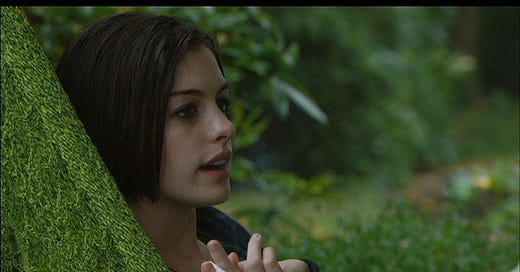My Fave Holiday Films Are About Dysfunctional Families
My last Christmas with my mom, plus some cathartic film recommendations
Note: some of the content in today’s newsletter could be activating, including issues of substance abuse, child abuse, family dynamics, and suicide. That said, there is nothing graphic.
Please consider becoming a financial supporter of this newsletter! Nothing is paywalled except the archives. Your financial support helps me keep it that way. A yearly membership is less than $3.50 a month. This post took me seven hours to write and edit. That’s on the low end for the number of hours I devote to each and every essay I write. Your paid subscriptions keep things going.
You can also donate any one-time amount towards my work by clicking the button below.
Keep reading with a 7-day free trial
Subscribe to Gathering to keep reading this post and get 7 days of free access to the full post archives.




